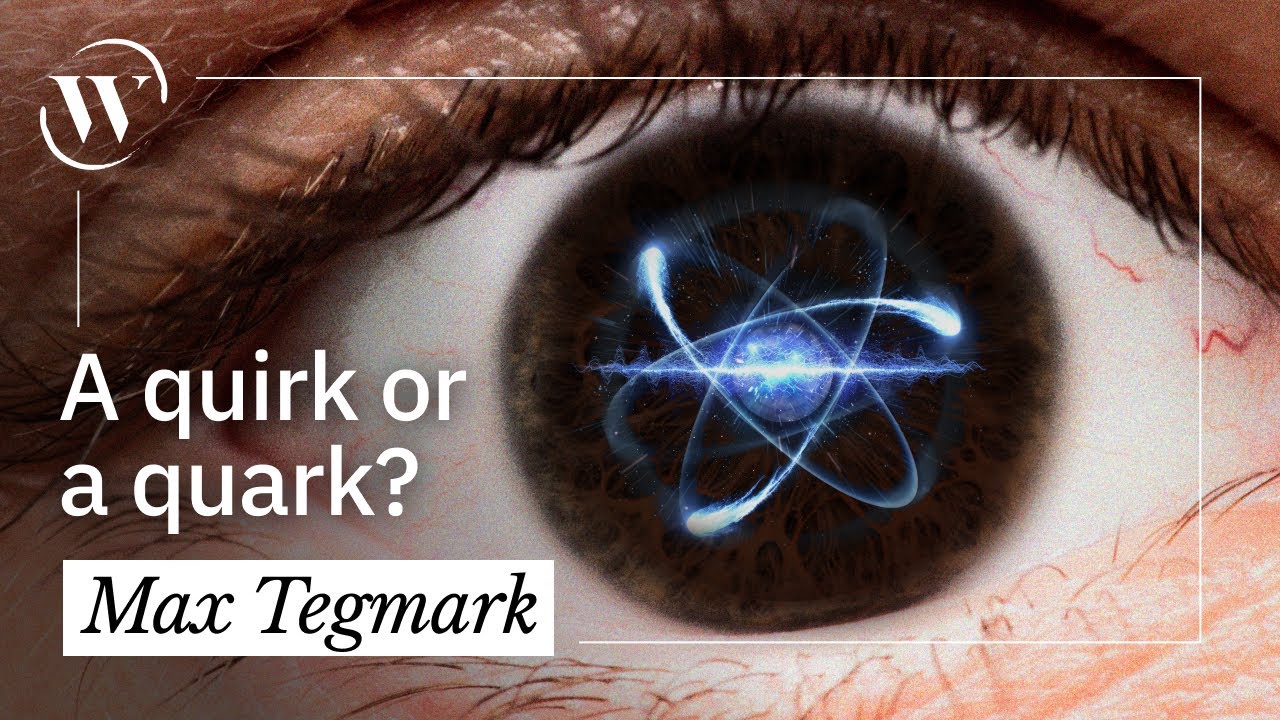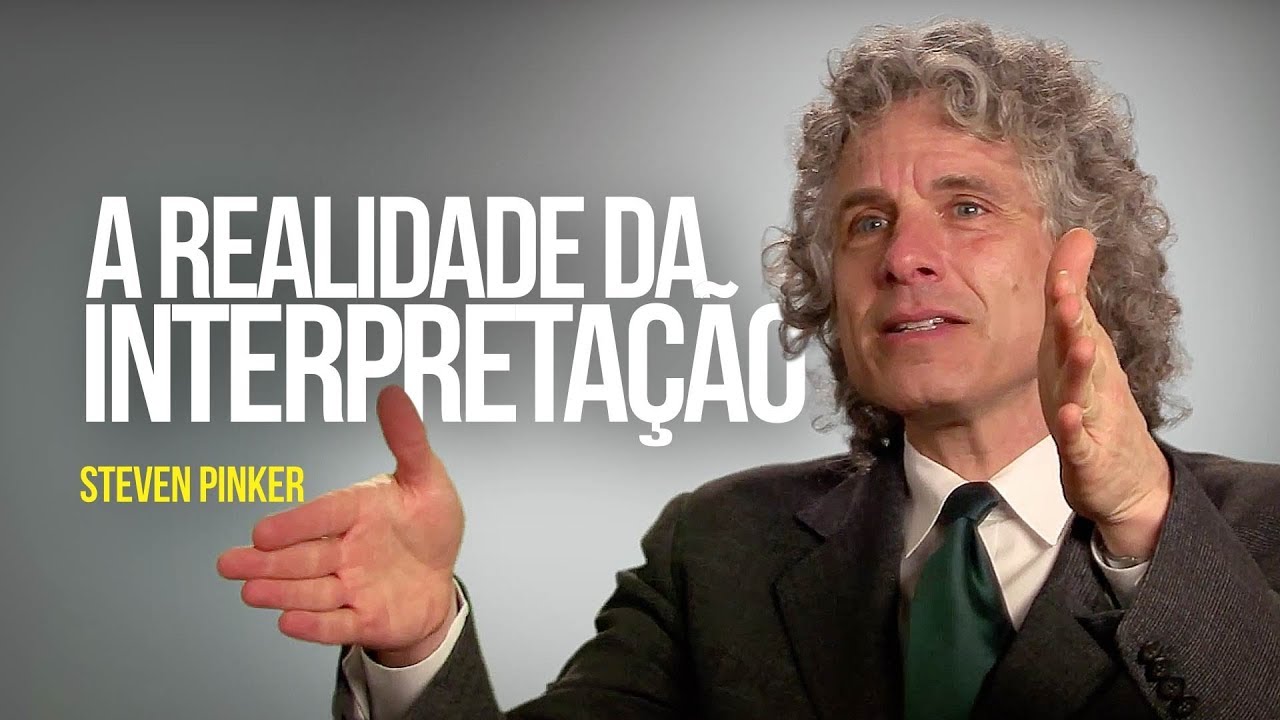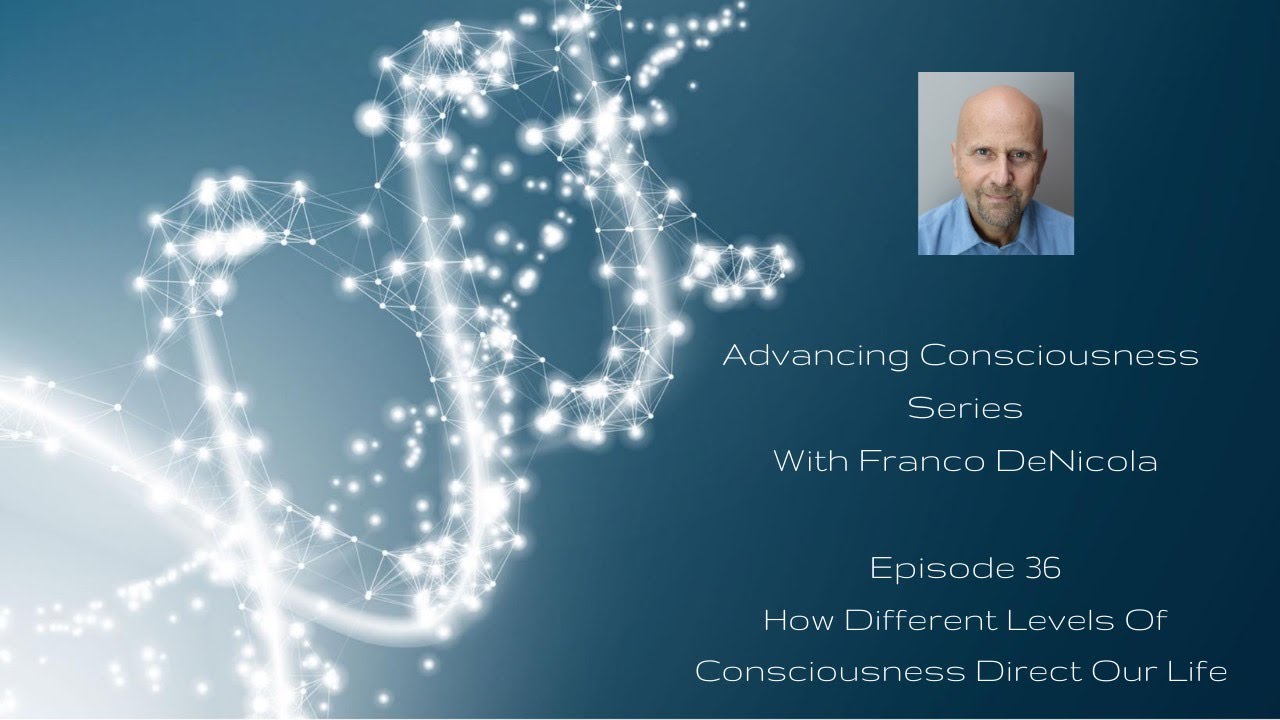The Well
Is science destined to crack the code of consciousness—and how would we even go about it?
❍ Subscribe to The Well on YouTube: https://bit.ly/welcometothewell
❍ Up next: Where science fails, according to a physicist https://youtu.be/4hpdKQB2ruc
Dr. Max Tegmark believes that consciousness is both irrelevant and incredibly important.
If you are being chased by a heat-seeking missile, it is not relevant whether the missile is having a subjective experience of consciousness. We only care about what the missile does, not how it feels.
On the other hand, consciousness is incredibly important because it is where we find purpose and meaning. We should not allow the Universe to give meaning to us; we should give meaning to the Universe.
Read the full video transcript: https://bigthink.com/the-well/consciousness/
———————————————————————————-
❍ About The Well ❍
Do we inhabit a multiverse? Do we have free will? What is love? Is evolution directional? There are no simple answers to life’s biggest questions, and that’s why they’re the questions occupying the world’s brightest minds.
So what do they think?
How is the power of science advancing understanding? How are philosophers and theologians tackling these fascinating questions?
Let’s dive into The Well.
———————————————————————————-
Join The Well on your favorite platforms:
❍ Facebook: https://bit.ly/thewellFB
❍ Instagram: https://bit.ly/thewellIG
Source




What do you think consciousness is?
Consciousness is a tough thing to study scientifically. Subjective experience is the only proven effect, so the only way is looking at one´s own experiences and documenting them. But that means the observed subject themselves has to basically retell their experiences either at the moment of experiencing them, or later from memory, and we know sometimes neither will work, so what then?
It´s like measuring a computer using that same computer, how do you figure out what happends when it´s turned off or still booting?
This consciousness discussion is not new, some things, mind-related things, and many others, just cannot be tangibly/scientifically explained. For example, if justice is a social construct, that would mean it's subjective, but we know intuitively that anyone who would go against justice should be objectively punished. That's as close as we can get with some things – intuition. We just know some things intuitively, and cannot explain them with numbers or microscopes, that's why it's called meta-physics. It's beyond what our sense organs can detect (physics). The problem with materialists is that they cannot accept this, because it shakes their ego when they realize their worldview (everything is physics) which is a source of their pride and peace has a gaping hole. They should gracefully accept that they will never be able to explain it, like everyone else – like most people way smarter than them in the present, and in the past have.
I’m curious sinusitis or other things ❄️
consciousness is one of the most divisive issues in science today because everyone's personal experience inherently gives bias – so if personal experience can't be objectively removed and human specialness maintained then no universal agreement will be achieved, thoughts?
What about if a heat seeking missile was after you and you saw the colour blue and blue had a number of different meanings to you (qualia) so you ran towards the water and jumped in and the missile passed you by because it lowered your body temp.
Perhaps blue signaled to your brain things which you might have experienced which were refreshing like chill, cold, cool, chilly, autumn/winter days, ice, ice water, etc, and this caused you to react without thinking, wouldn't the qualia, the way one experienced/experience things matter?
I hope I am using qualia properly here, just trying to learn.
Also, why would anyone be afraid of future technologies?
We're still a long way away from machines which will have the ability to take over the world, if they even try to do that.
So many religions try to tell you that your subjective experience is somehow not important when the truth is that it is everything. Everything you experience and ponder is inherently subjective. There are philosophical problems with the limitations of language and communication so that you can never truly communicate your experiences as you experience them to another, nor they to you. It's all sending and receiving sounds and symbols and making assumptions.
There is another problem with solipsism and experience that also can't be overcome. In this manner all of us are born alone, live our entire lives alone and die alone. Each alone individual is a self regardless of the fact of larger groups of individuals.
Max. You can laugh, or you can cry. But I can't sit here and watch you do both at the same time like this. :' )
The hard problem of consciousness
Looking at consciousness from the perspective of science is like looking at quantum mechanics using the tools of masonry.
You are confused just because you dont believe god.
I wonder if we are able to compress all the things e.g matter, space and time, in the last we get singularity! We can't get rid of that which means something is eternal!! If the universe is so intelligent and wanted to be self aware, it could have made immortal, powerful beings through which it can experience greatly!! Why humans then?🤔🤔🤔
Which is more difficult to achieve?
Fully sentient and self-aware machines,.. or telepathy, technologically assisted?
If there is no free will,.. why have consciousness at all then?
natural choice
Does something being conscious need to feel?
It seems someting people mention when they speak of the ' I ' that is feeling conscious.
If it does require feeling or the ability to feel then we understand feelings quite well and can even explain them from a chemical point of view as well as the sense of feeling through our senses such as touch or taste and how the brain interprits those chemicals.
If you were to take away awareness, however, would you still be conscious?
That i think is a little bit more of a difficult question to answer.
If you're not aware of anything and so not conscious then there is something in that.
How far could you remove awareness that you then become no longer conscious?
You can in some cases be aware that you're dreaming when you dream yet aren't aware of the outside world.
Is that a different form of consciousness or consciousness used in some different way?
Is there a way that we can tell if in the internal world ( Dreams ) we are conscious?
We can tell that we are dreaming because of R.E.M but you can dream and not be conscious of doing so.
I think before we really ask any questions it needs to be clearly defined by what we mean by something being conscious, something that is agreed upon because until you can do that then you will find the questions difficult to answer.
You can't keep changing the meaning and expecting the same answers.
“Nobody home” love this guy’s phrasing😂
In 2017 I wrote
Want to give the best gift ever to the world?
Tell them what is consciousness!
And that's what I'm gonna do
Vedanta has lot to say about this.
Max, you’re getting into Yoga. Just as you are reflecting upon yourself, Brahman(ultimate reality)became self-conscious the moment he/it reflected upon himself. All inanimate objects have consciousness, although limited. Man, at his core is divine.
if you and other scientists were really interested in consciousness, you would be banging down the doors of er rooms, asking to do tests. there is OBJECTIVE EVIDENCE of people knowing stuff that they could not possibly know, while being unconscious on the operating table. at least not in the realm of materialism. materialism is simply wrong, and western science does not want to admit the obvious, because they would end up with so much egg on their face, that they could have an omelet every day for the rest of their lives. these experiencers all talk about meeting god, and feeling a tremendous amount of love. the evidence for god is overwhelming. it all leads to the conclusion that consciousness is fundamental, and everything falls out of it. until western science is willing to admit to that, it will be forever lost in ridiculous theories, like the many worlds theory (if one can deign to even call it a theory !!)
I believe it such a complex matter that we have to devote many more resources into this topic. I am not talking about billions, I am talking about probably more close to trillion(s).
Everything we experience is light slowed down to a sensible speed including our thoughts.
Consciousness could be one of the most complex phenomena our universe presents to us since its inception.
There's nothing wrong with turning off a machine (or a being in general) that is conscious (or let's better say sentient, which is what you're mainly talking about), while it doesn't have a survival instinct (which there's no reason for it to have, unless it has been explicitly programmed). The Rick and Morty show made a good point about this in their episode about Mr. Meeseeks.
Fascinating in itself is how these otherwise impressive scientific minds seem as poorly equipped as the rest of us laymen to approach this 'problem of consciousness'. The immense and prolific power of the scientific method is plain as day. Yet attempt a basic first step such as establishing what it is this word 'consciousness' even denotes and behold the flailing that ensues. Fluent and highly articulate flailing, no doubt, but there's a lack of clarity there, a lack of sophistication, that's apparently fundamental. Not being a philosopher I'm unsure of the word but I think the basis of this confusion is 'epistemological' – an epistemological blind spot or block, no?
Thinking this planet has made our brains so, we are this planets’ brains. We are this planets consciousness. It can see, through us.
he basically restates the argument of Tomasso d'Aquino : the world has no meaning without god / consciousness
Been playing with a hypothesis: It's known that energy reacts (with other energy) and thus has some form of perception…a base level consciousness. Imagine that consciousness has levels.
The hypothesis is that everything has a base level of perception (ability to react to energy). Atoms, etc…
0:40 is really borderline, it's not a product of the brain, the brain simply outputs a part of a proto-consciousness, meaning; we are part of something bigger as a whole… penrose said it's in the microtubules within neurons. (very symmetrical structures).
He's still focusing on consciousness being a product of the brain, which, if you go a bit further, you'll quickly realise that it's not.
He has a pretty interesting episode on Lex Fridman's podcast that goes into more depth
yeah must be frustrating to be conscious of being unable to explain what it is
Great video!
It's becoming clear that with all the brain and consciousness theories out there, the proof will be in the pudding. By this I mean, can any particular theory be used to create a human adult level conscious machine. My bet is on the late Gerald Edelman's Extended Theory of Neuronal Group Selection. The lead group in robotics based on this theory is the Neurorobotics Lab at UC at Irvine. Dr. Edelman distinguished between primary consciousness, which came first in evolution, and that humans share with other conscious animals, and higher order consciousness, which came to only humans with the acquisition of language. A machine with primary consciousness will probably have to come first.
What I find special about the TNGS is the Darwin series of automata created at the Neurosciences Institute by Dr. Edelman and his colleagues in the 1990's and 2000's. These machines perform in the real world, not in a restricted simulated world, and display convincing physical behavior indicative of higher psychological functions necessary for consciousness, such as perceptual categorization, memory, and learning. They are based on realistic models of the parts of the biological brain that the theory claims subserve these functions. The extended TNGS allows for the emergence of consciousness based only on further evolutionary development of the brain areas responsible for these functions, in a parsimonious way. No other research I've encountered is anywhere near as convincing.
I post because on almost every video and article about the brain and consciousness that I encounter, the attitude seems to be that we still know next to nothing about how the brain and consciousness work; that there's lots of data but no unifying theory. I believe the extended TNGS is that theory. My motivation is to keep that theory in front of the public. And obviously, I consider it the route to a truly conscious machine, primary and higher-order.
My advice to people who want to create a conscious machine is to seriously ground themselves in the extended TNGS and the Darwin automata first, and proceed from there, by applying to Jeff Krichmar's lab at UC Irvine, possibly. Dr. Edelman's roadmap to a conscious machine is at https://arxiv.org/abs/2105.10461
Love Mark